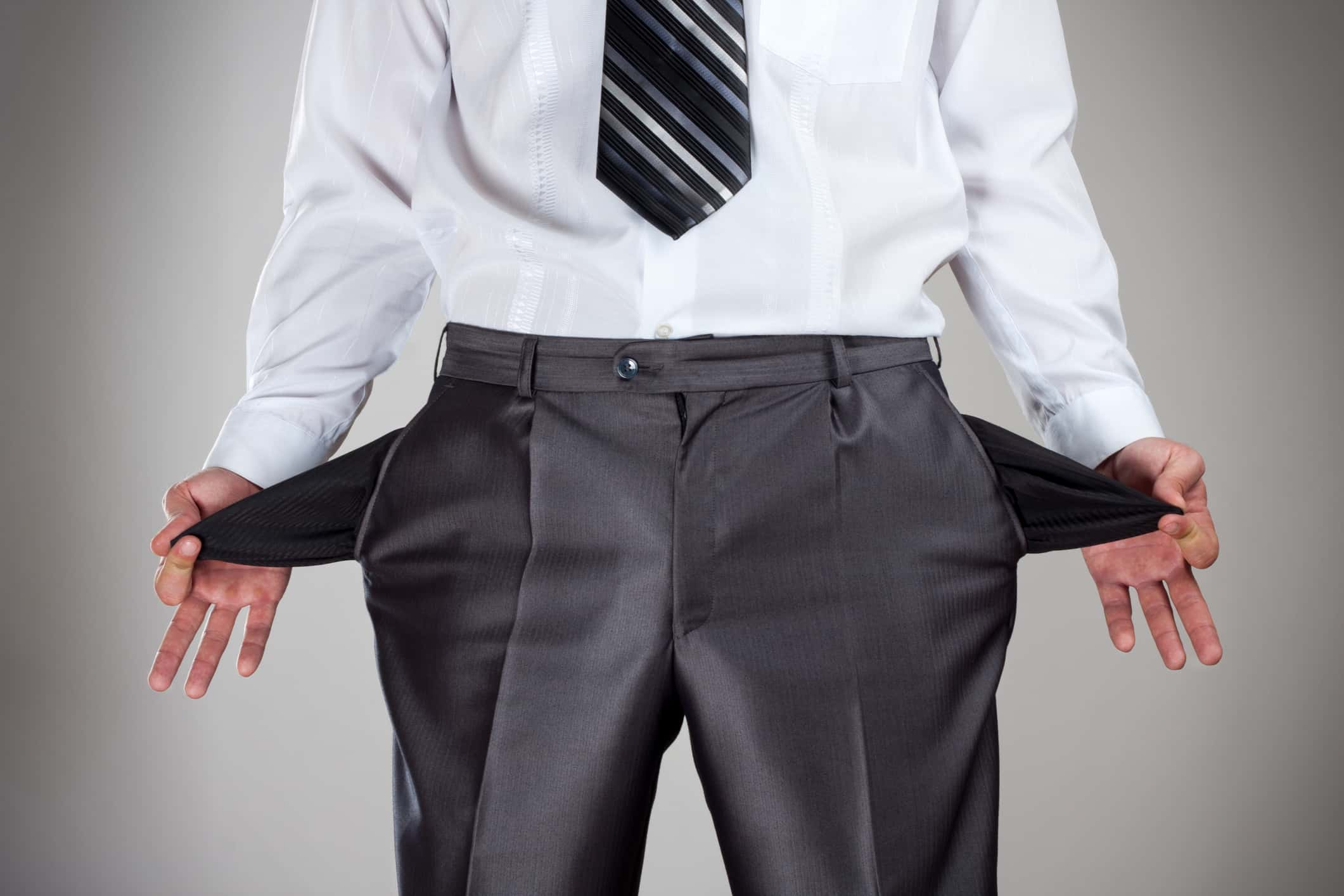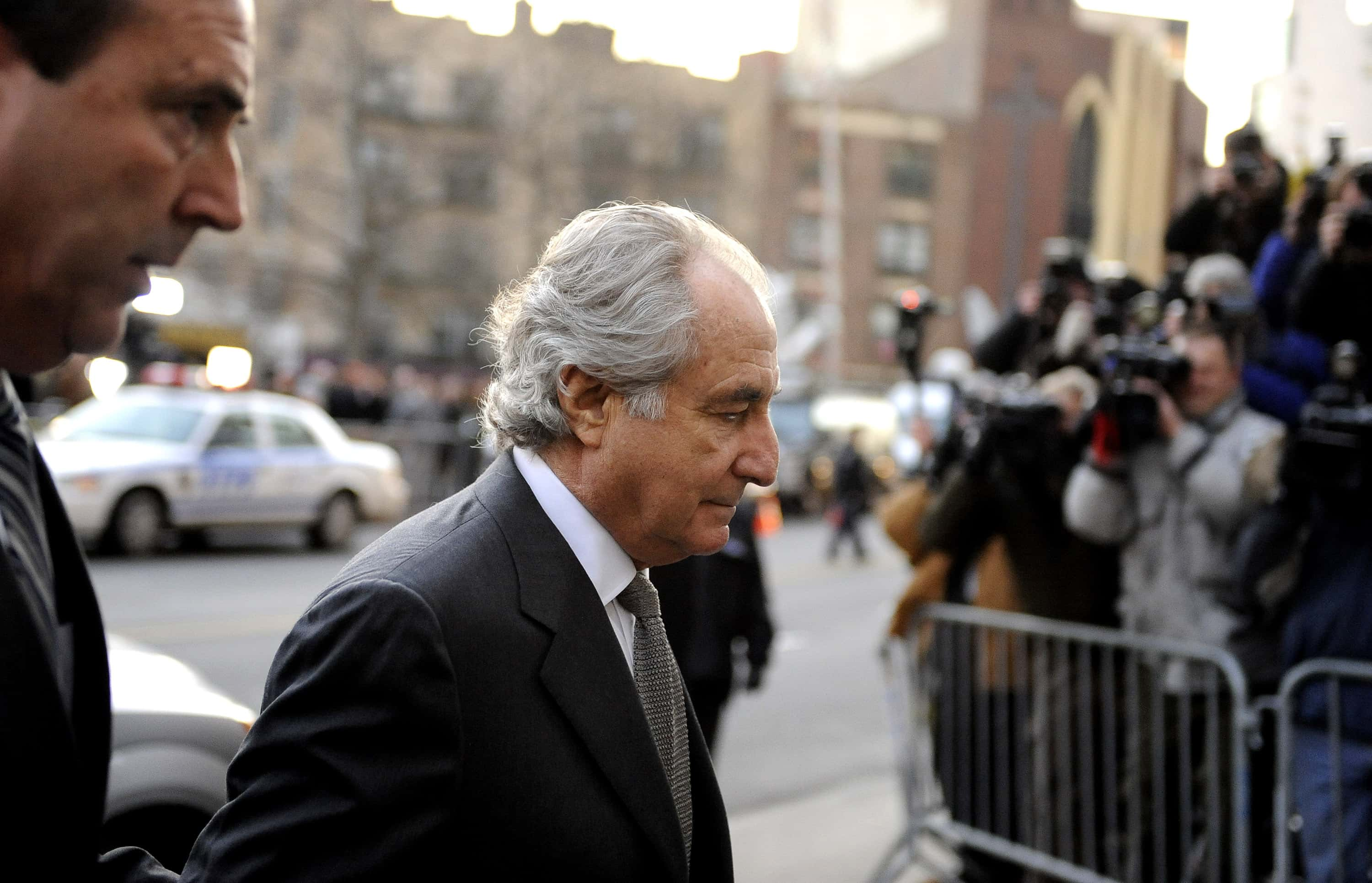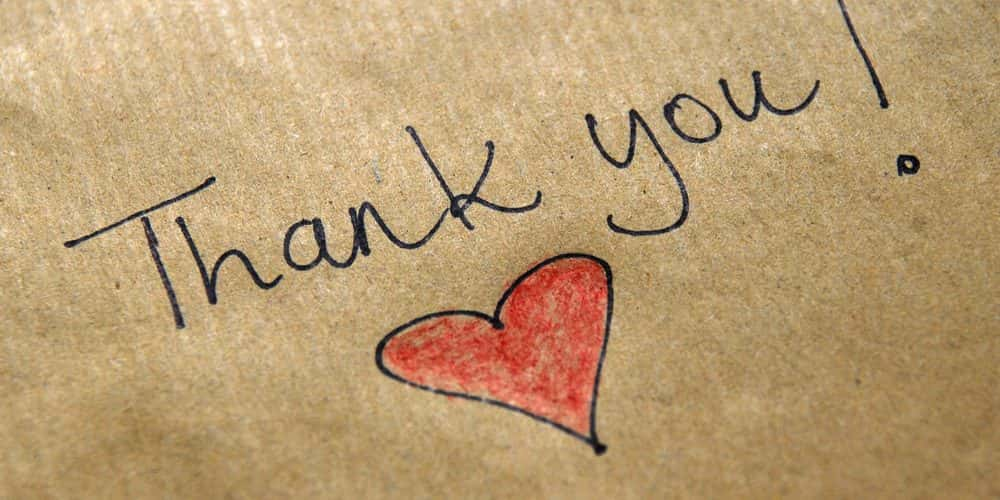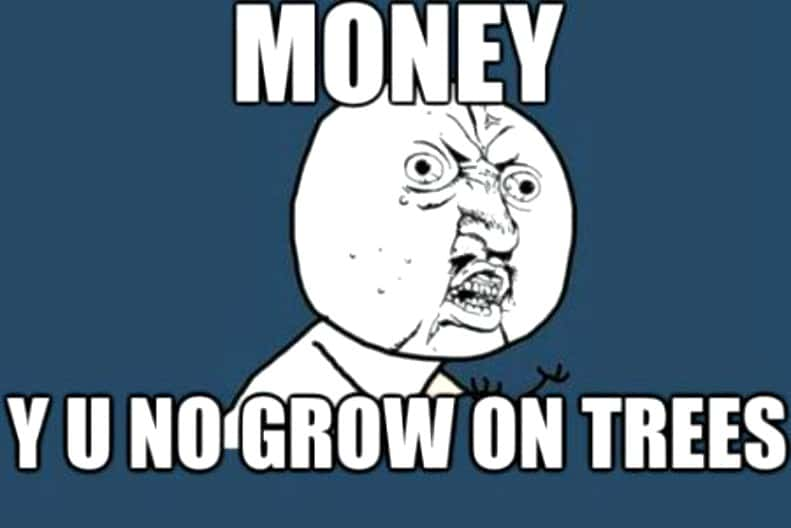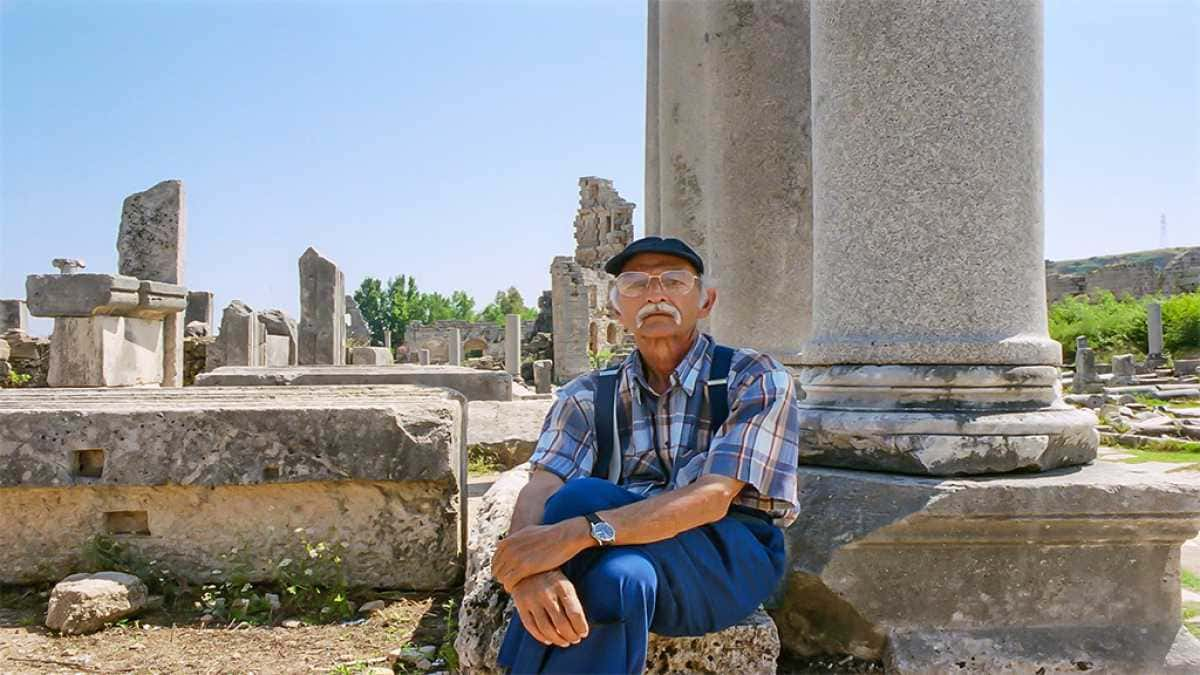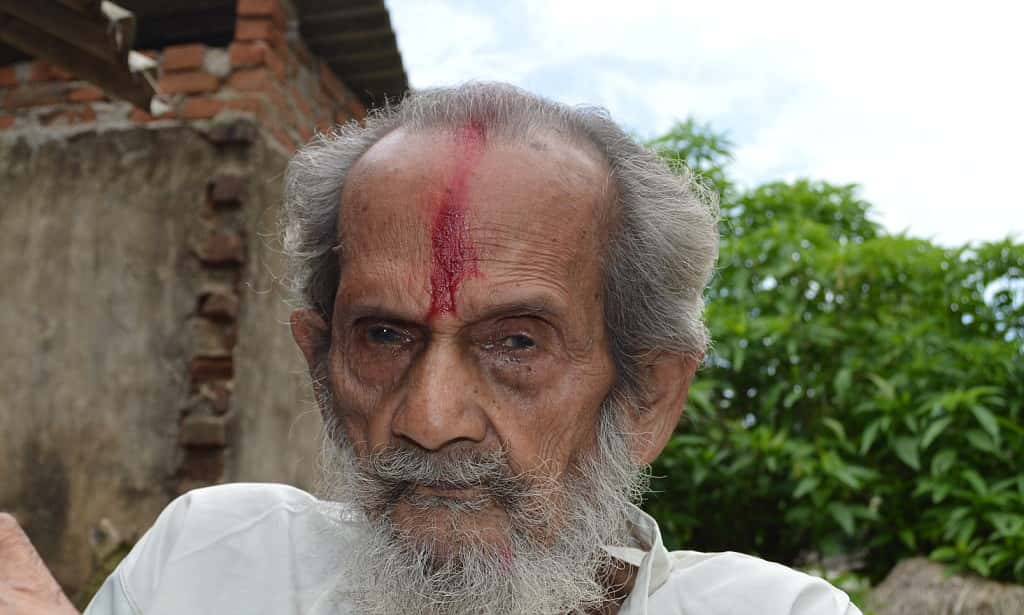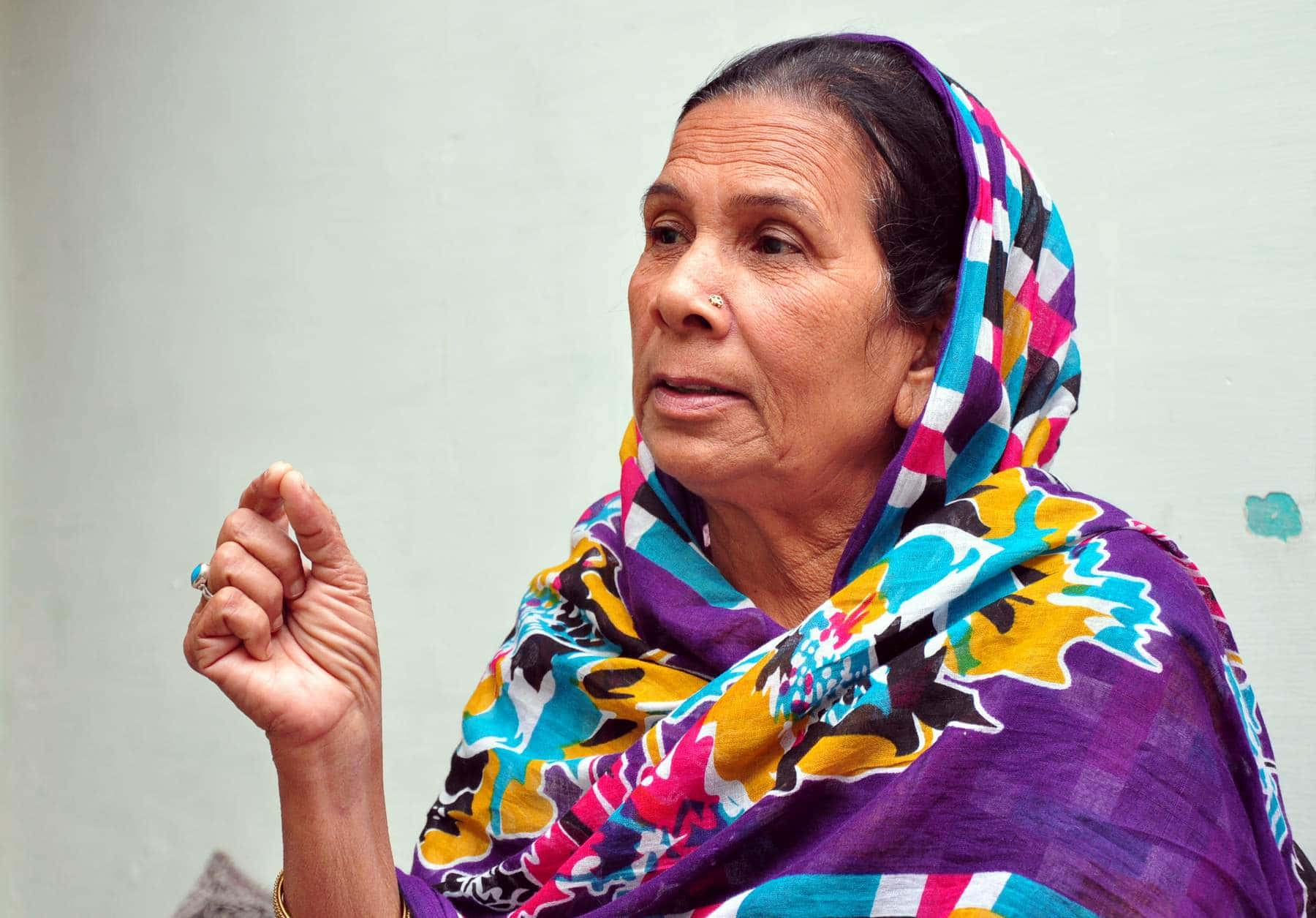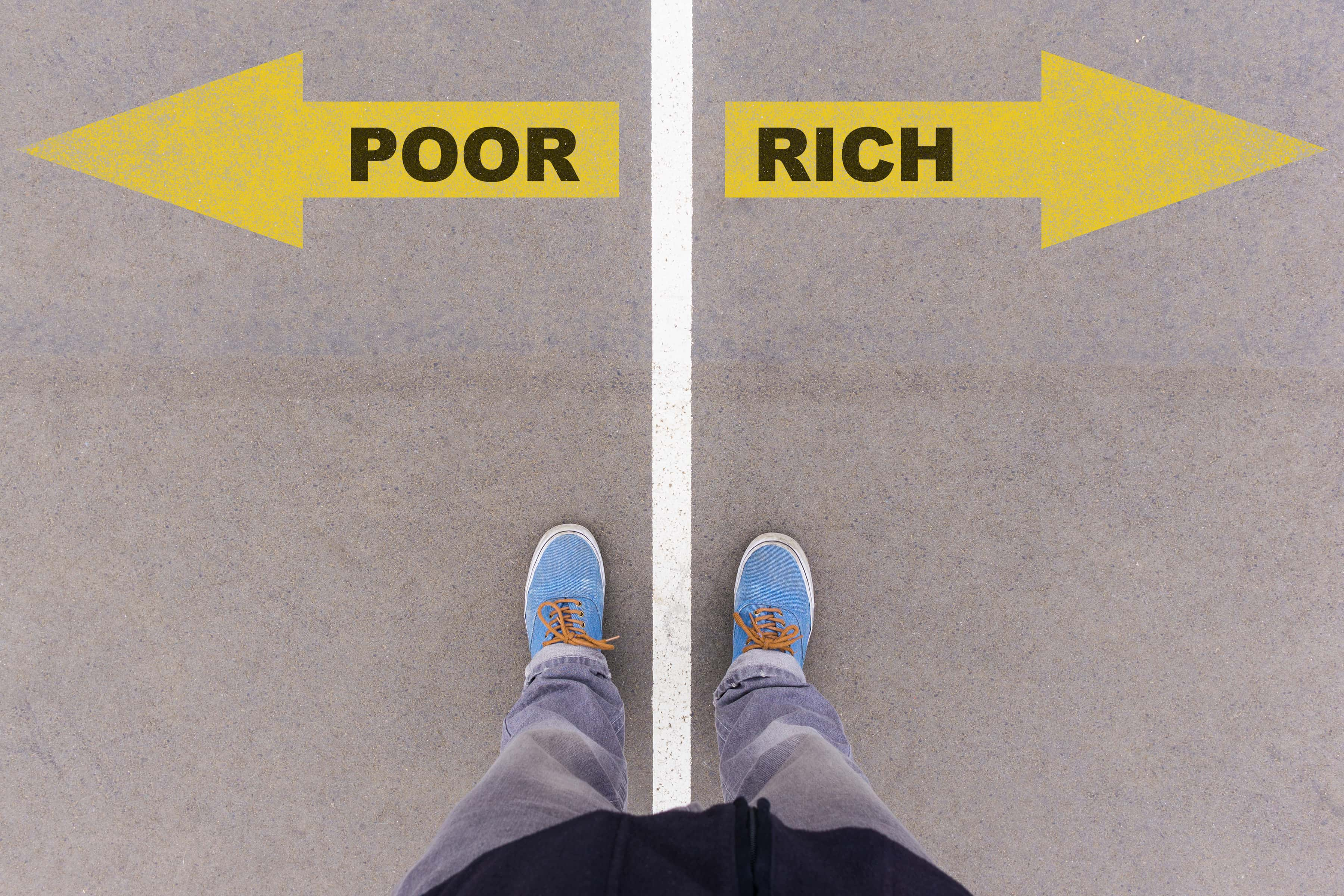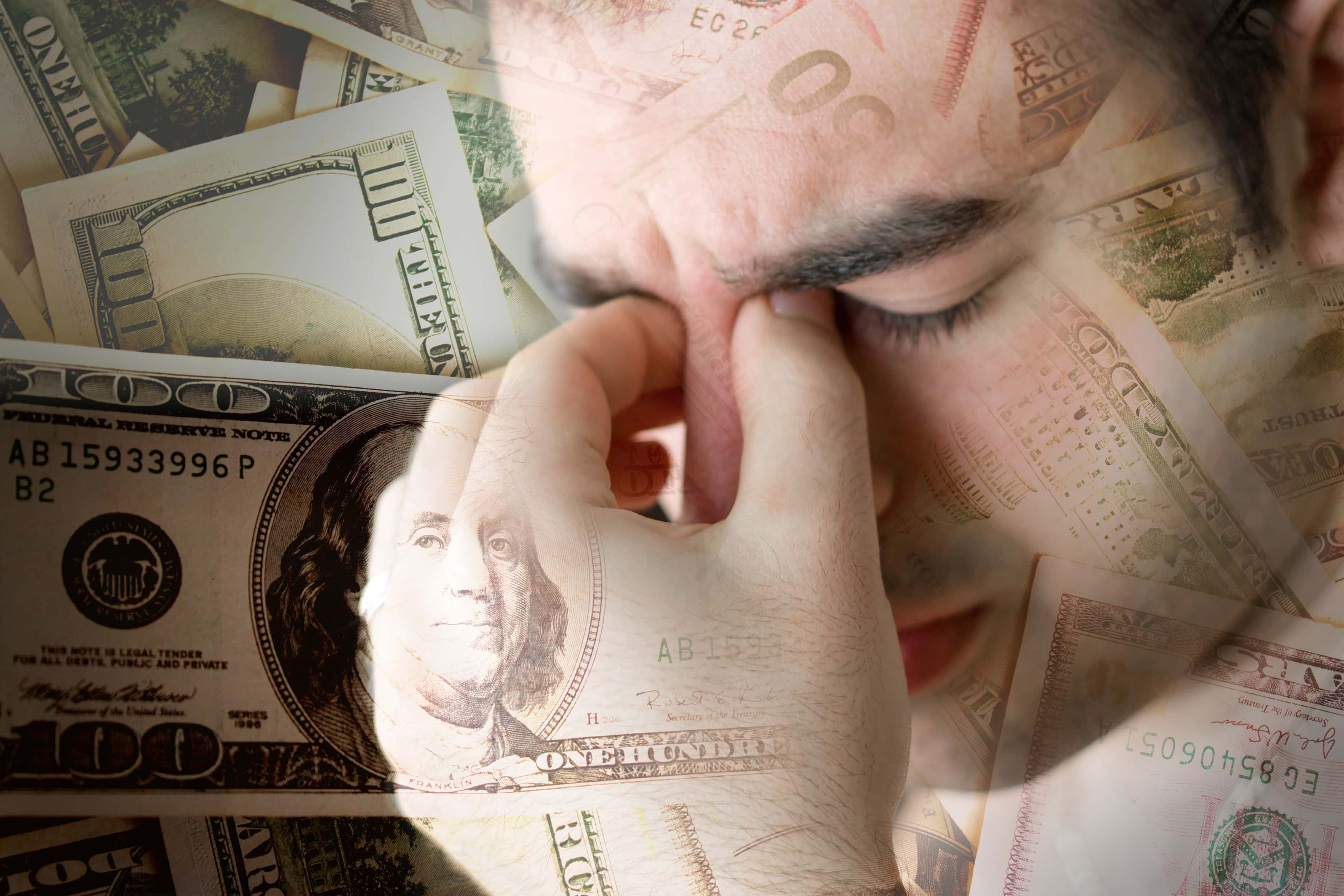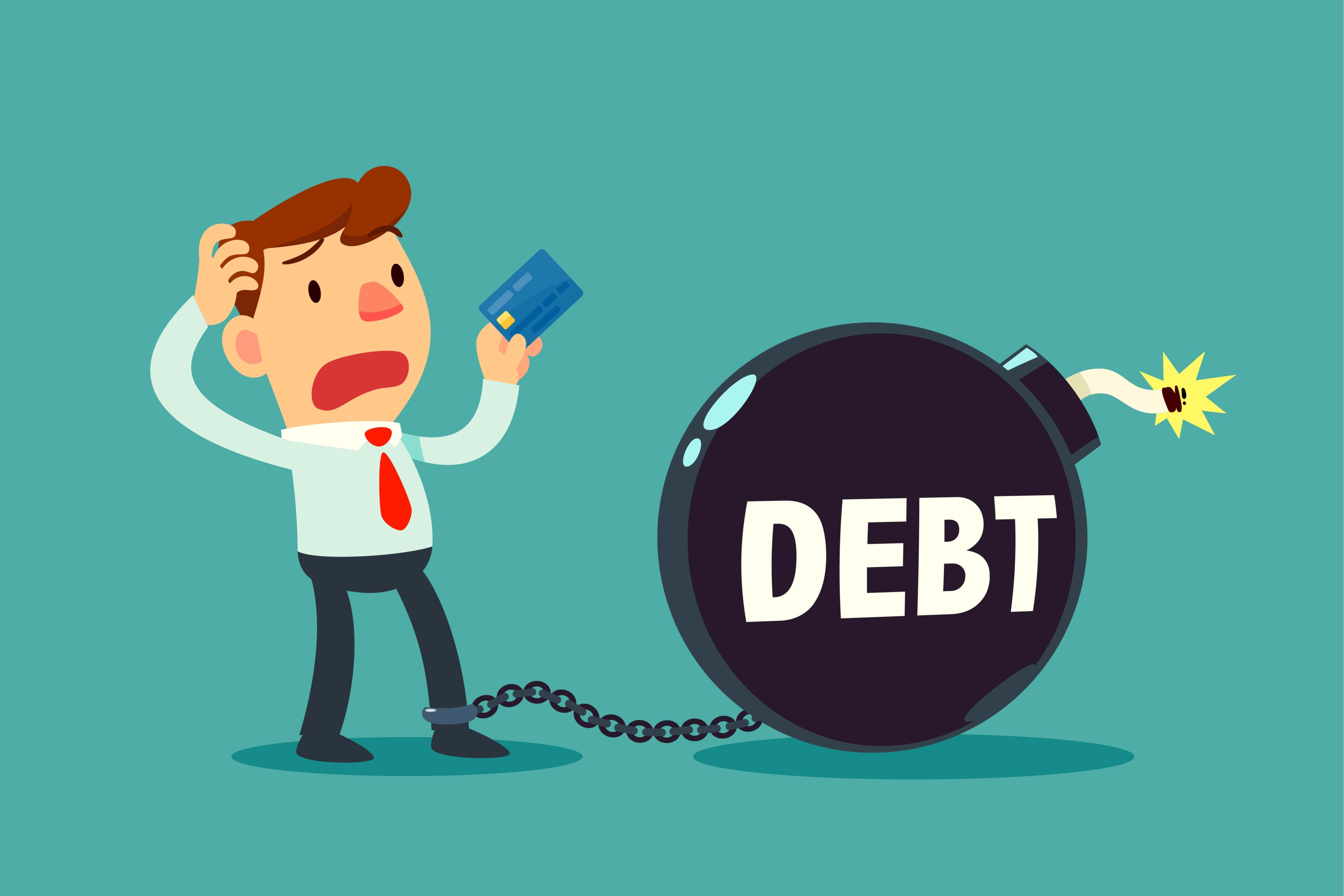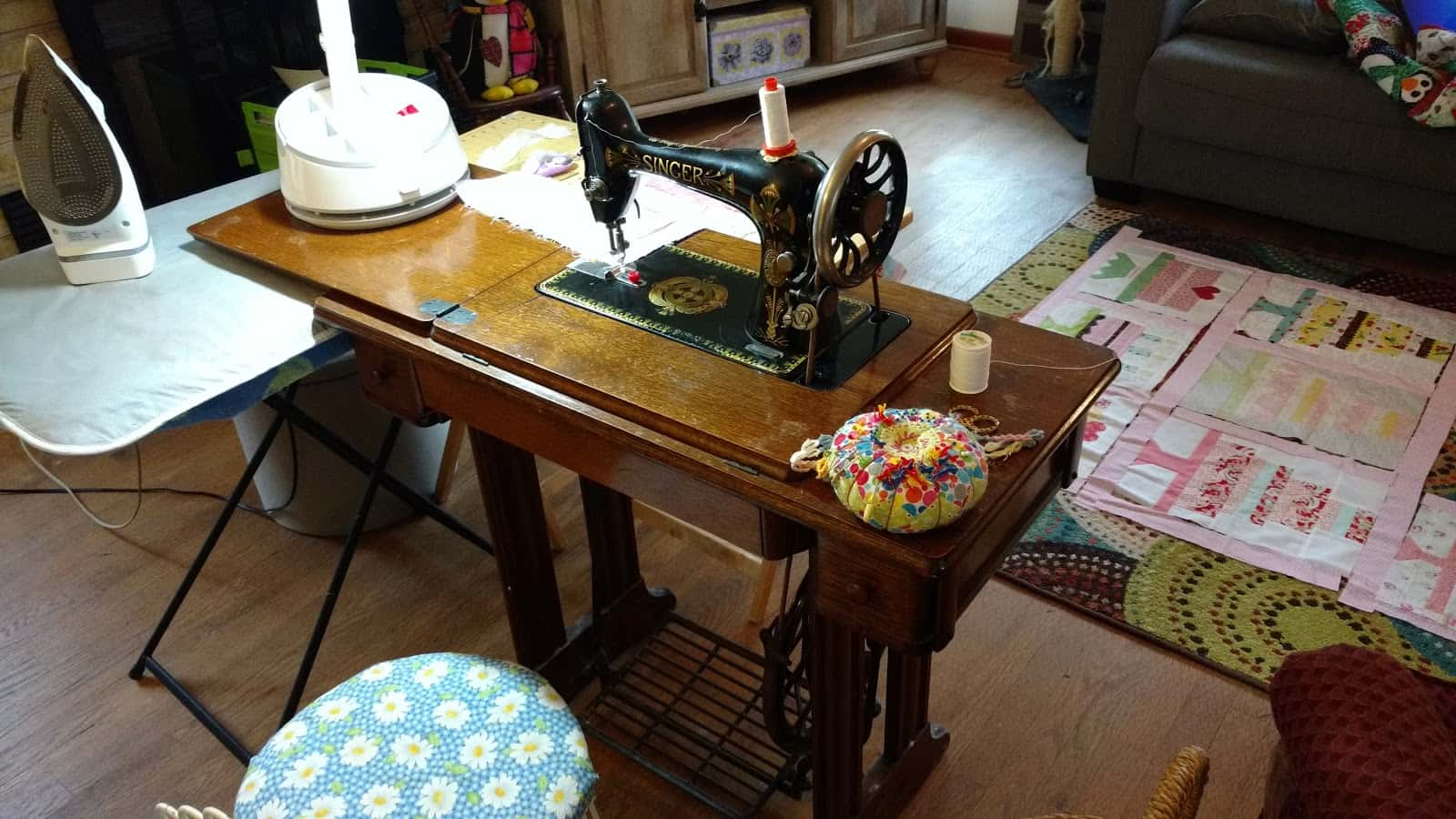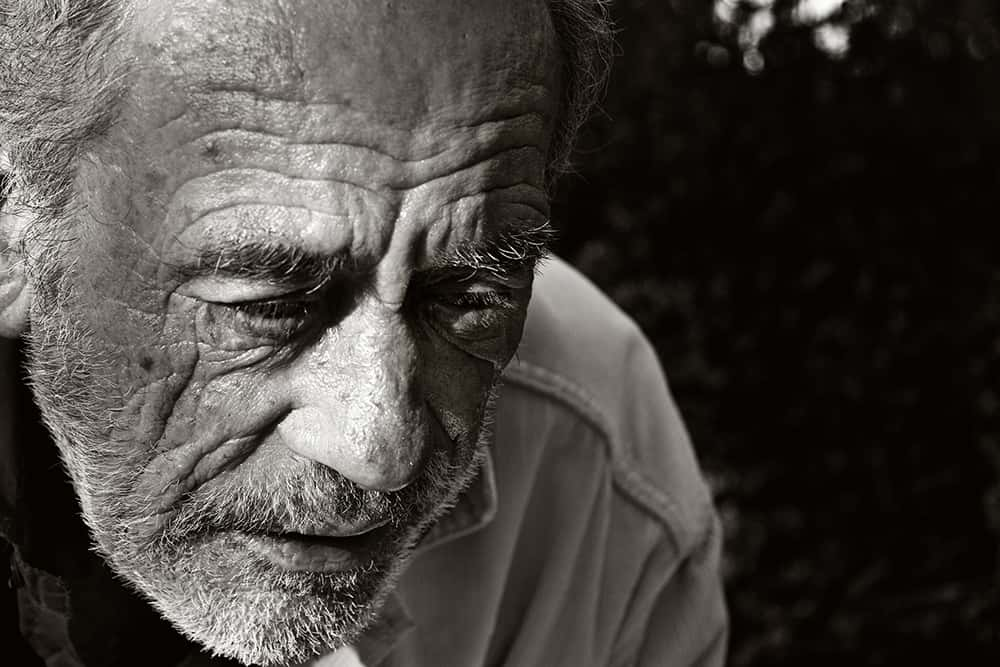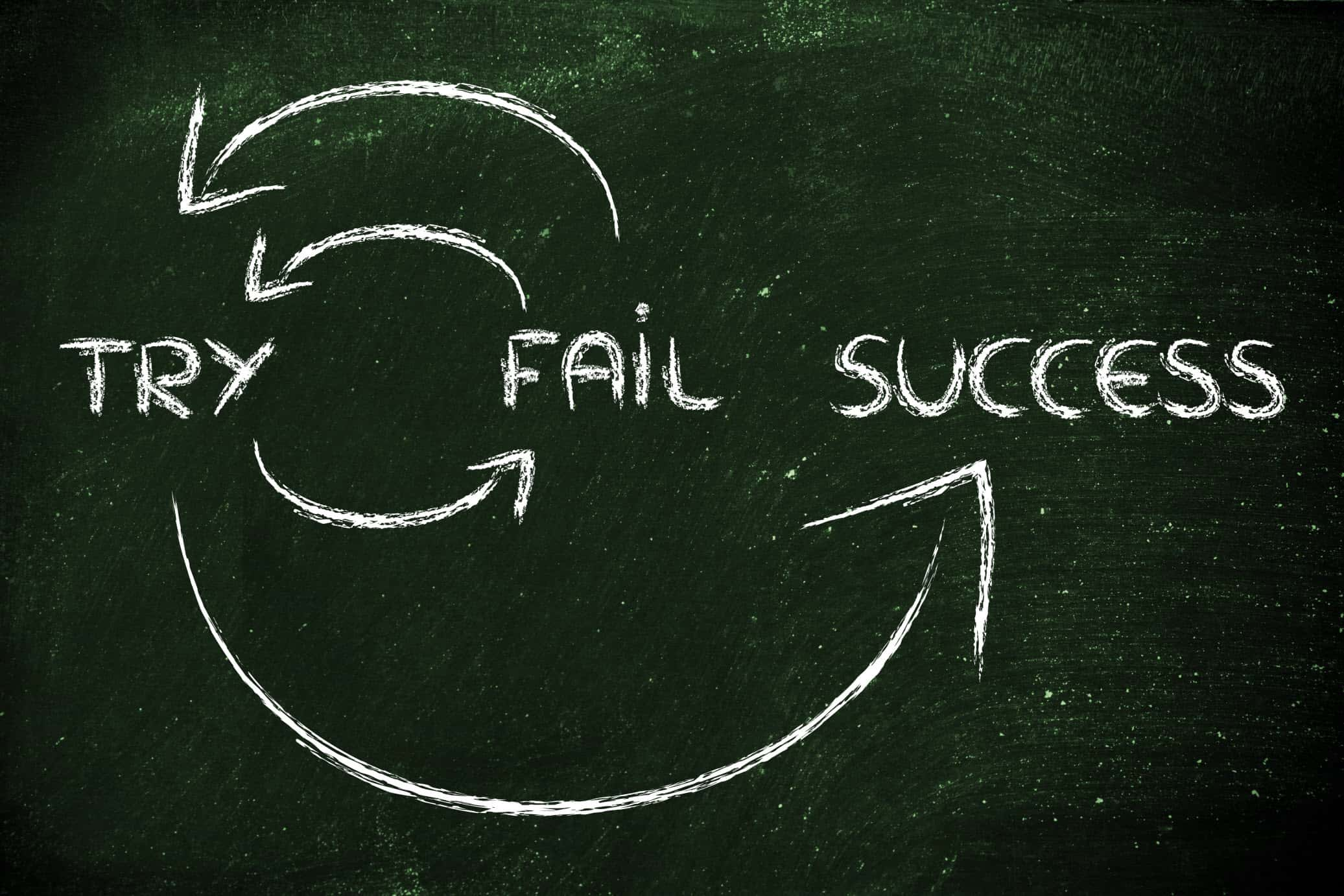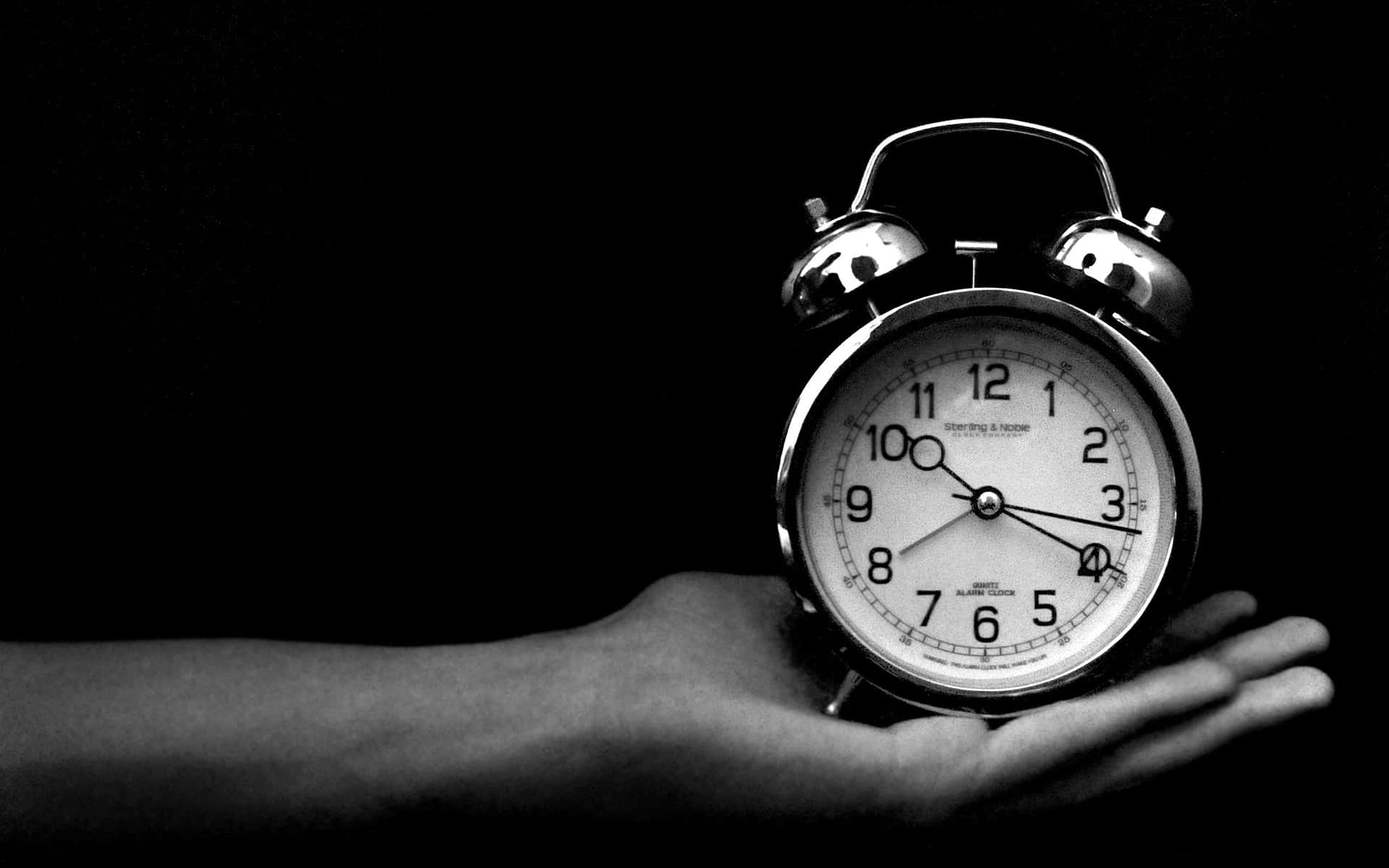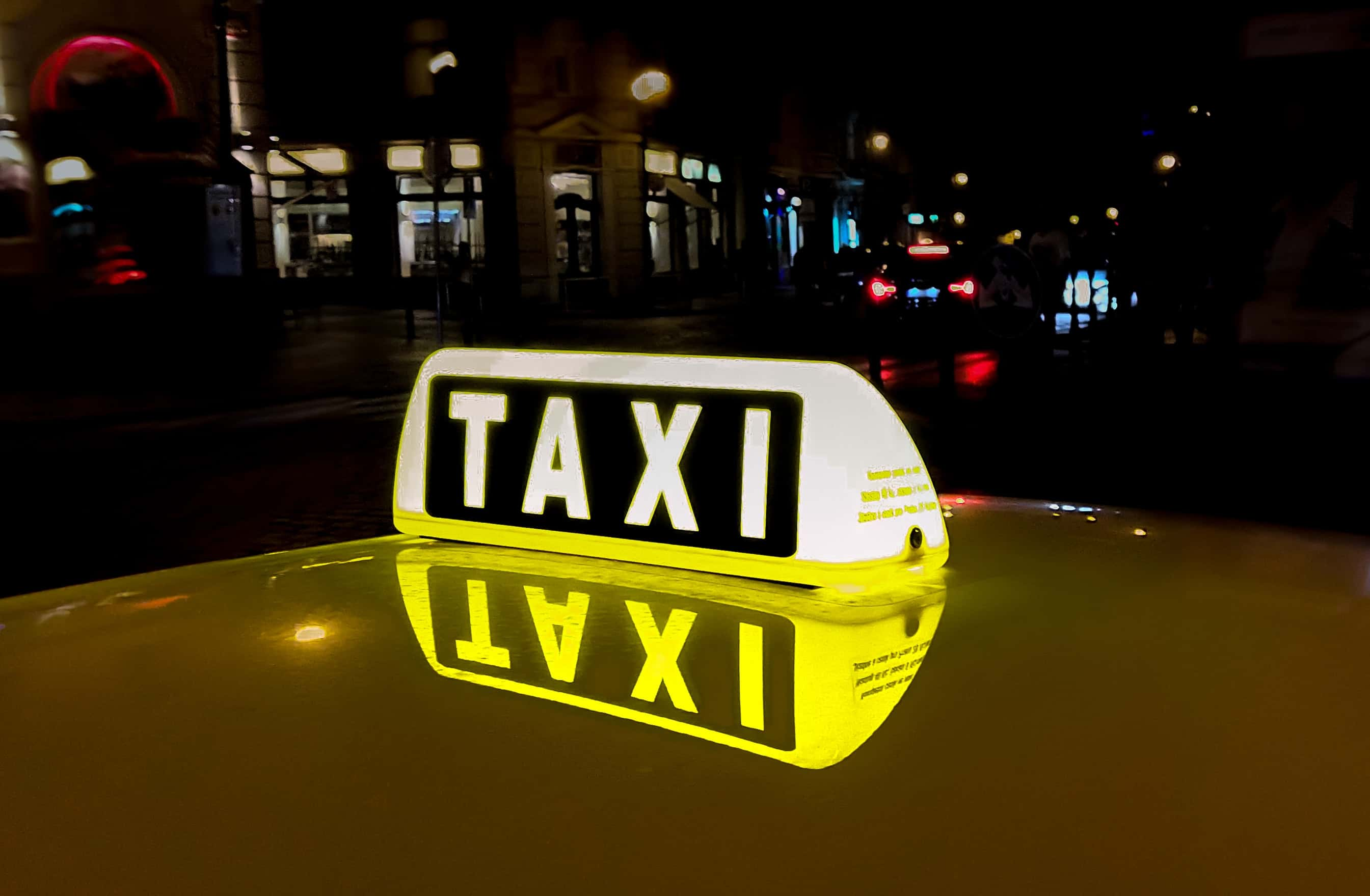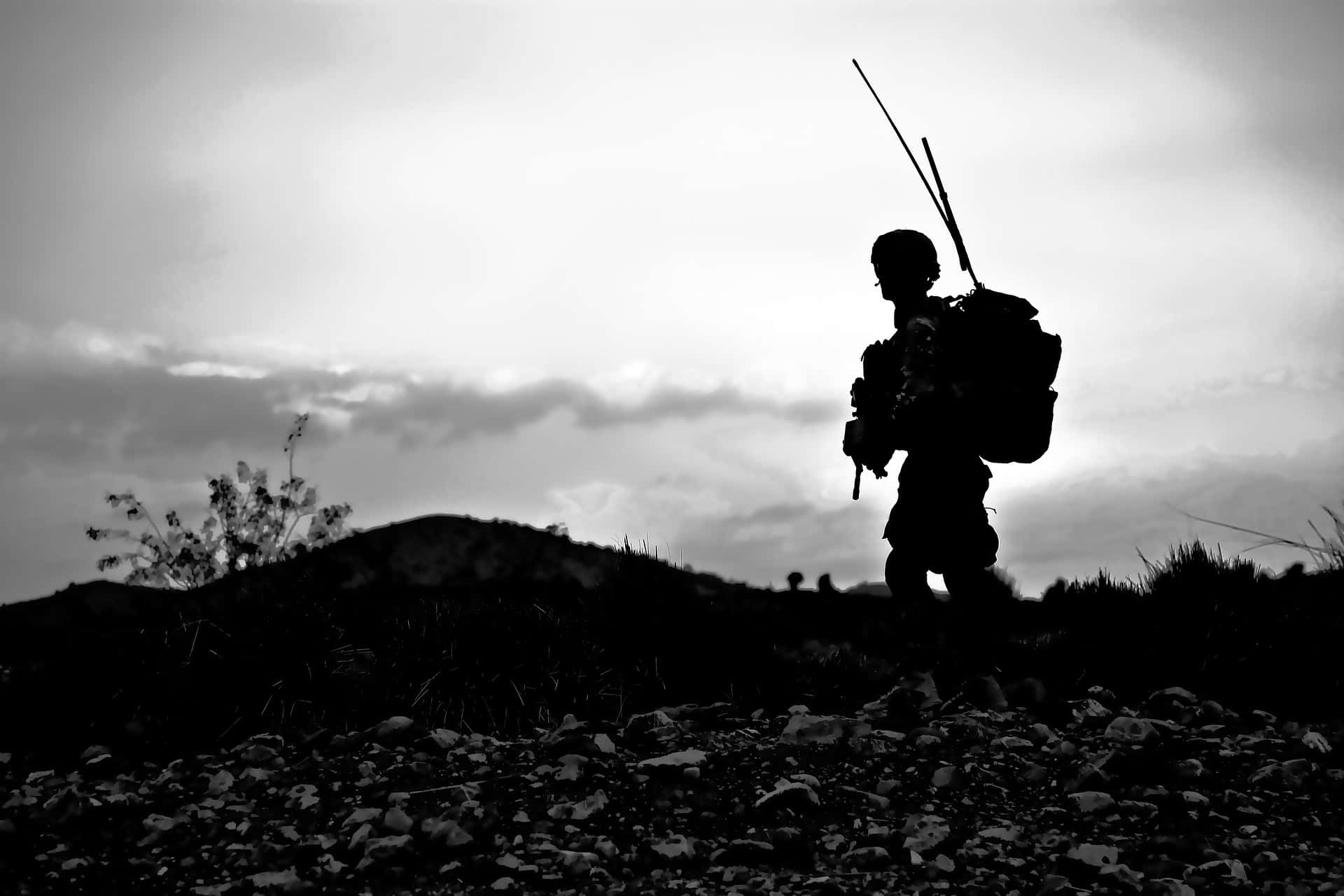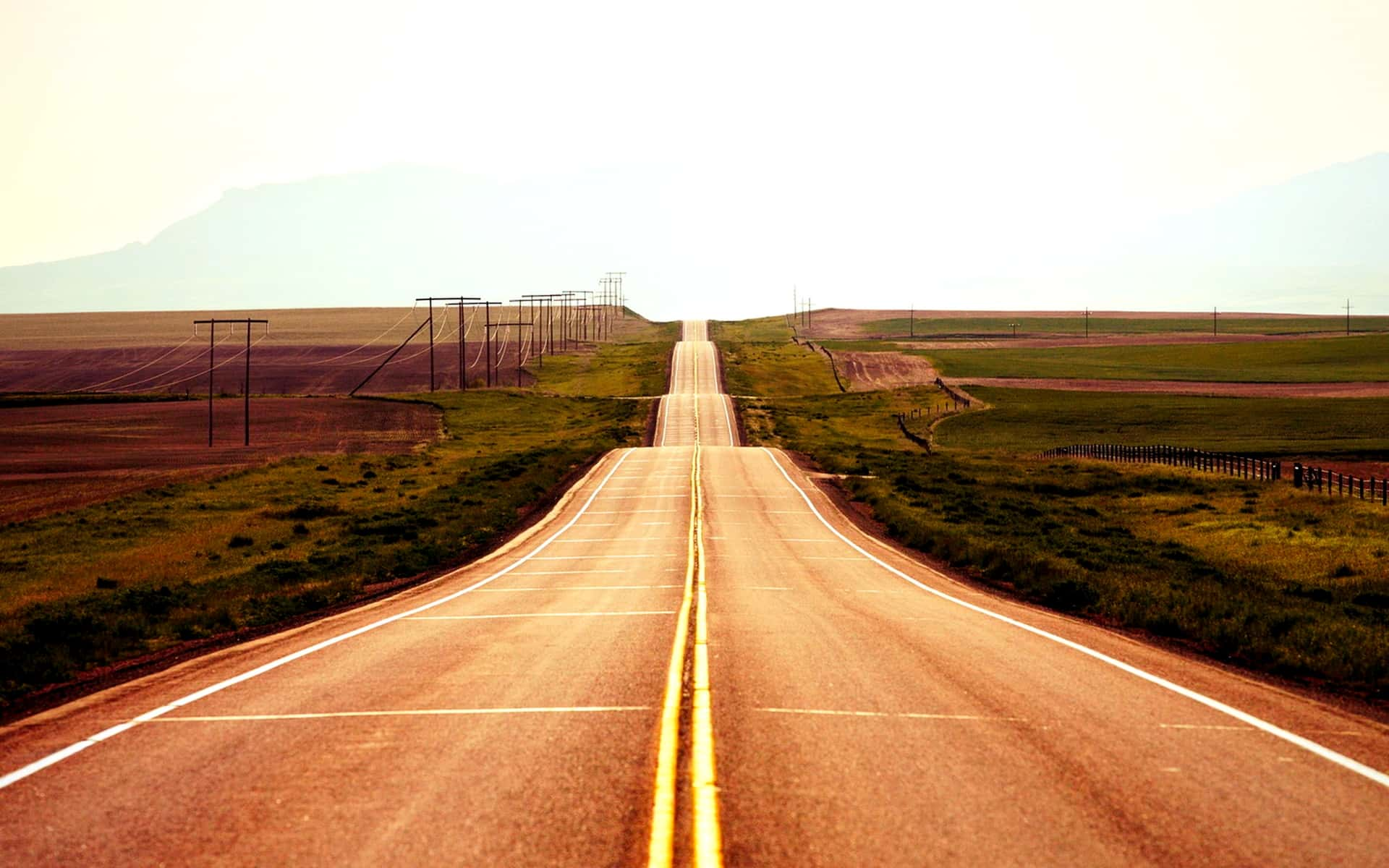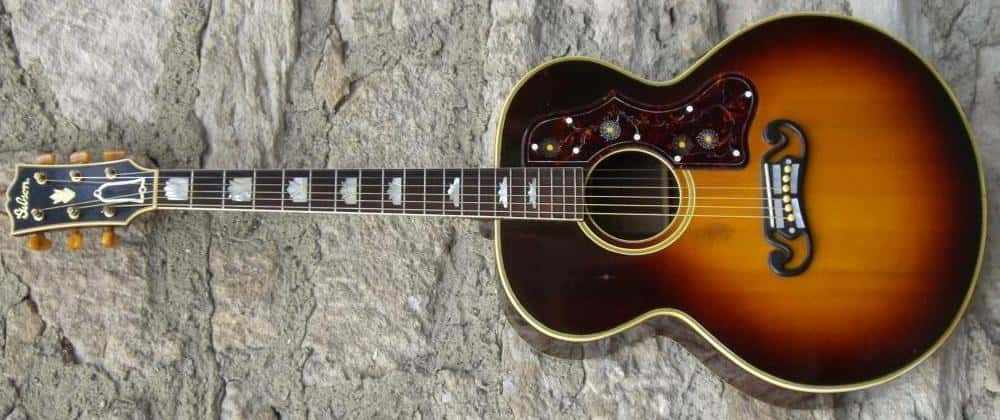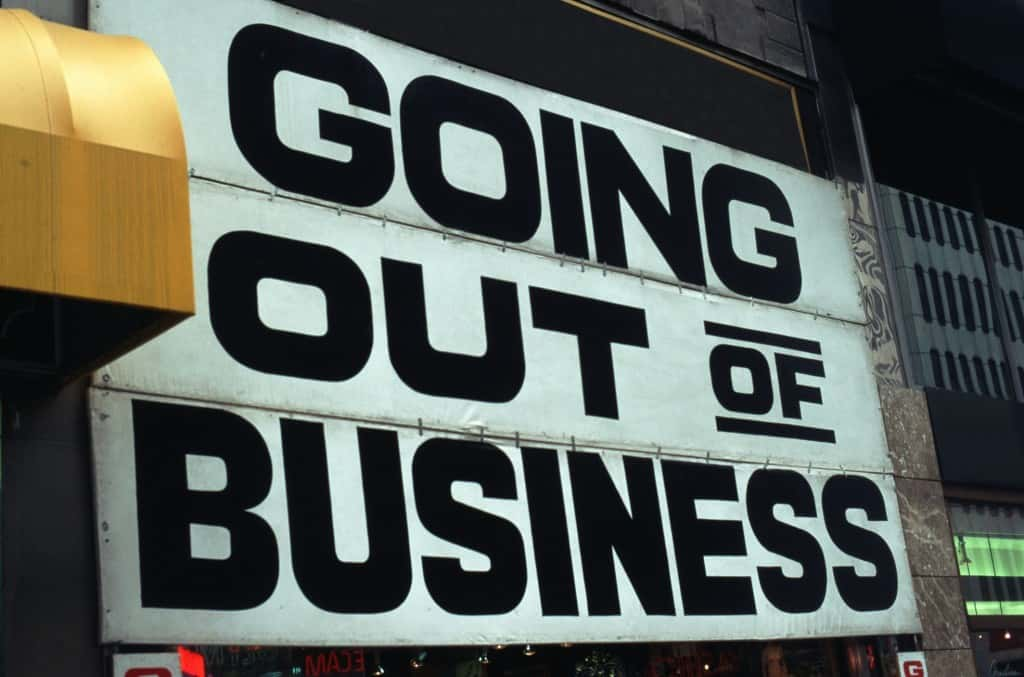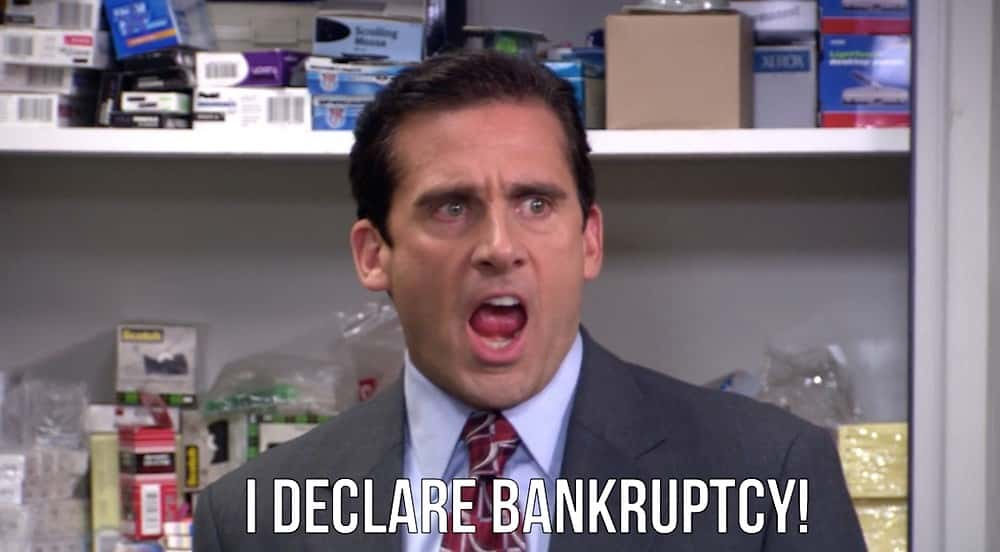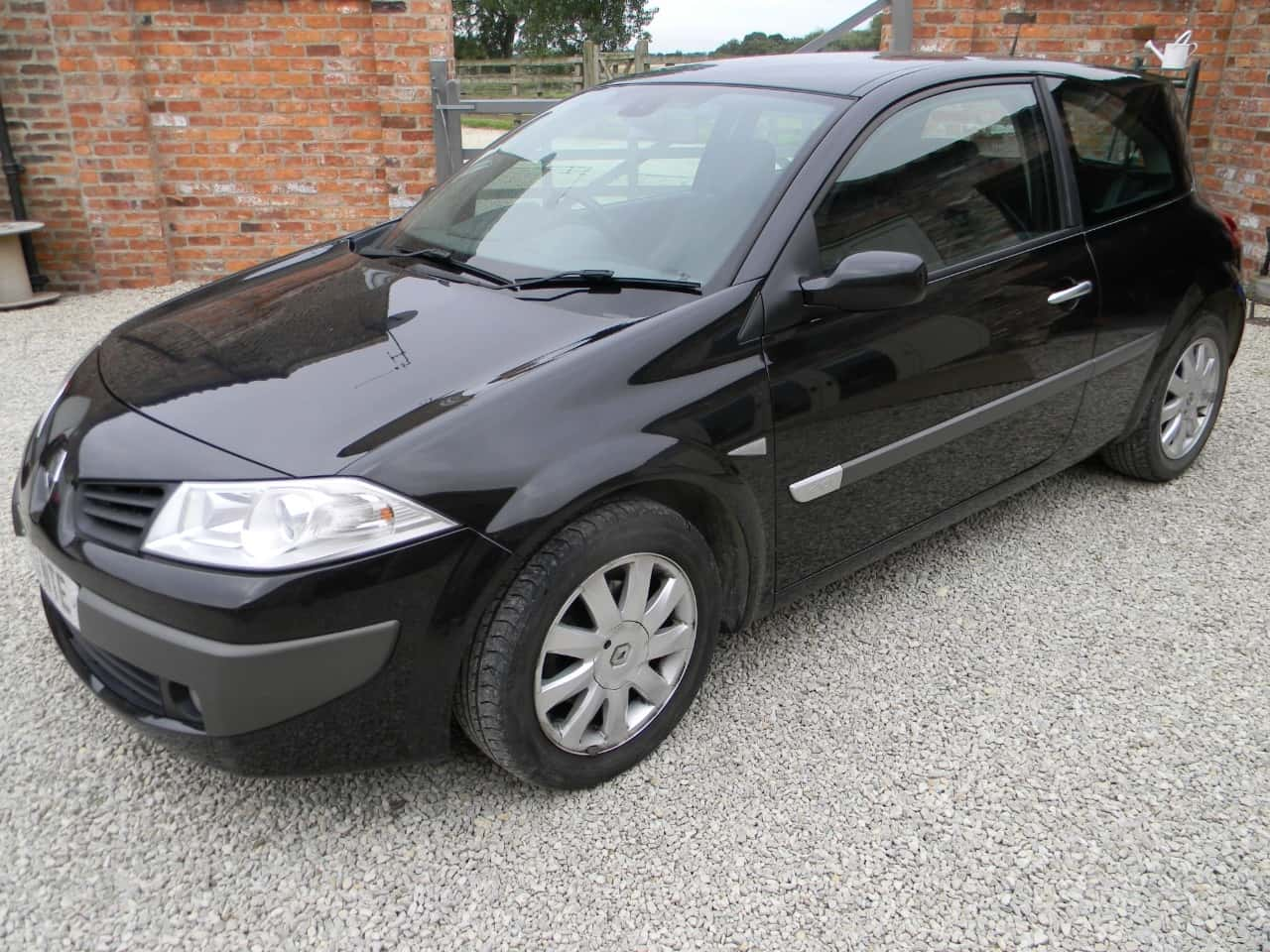The American Dream is something that is familiar to so many of us. The idea that someone can start with nothing but a dream, and work their way up to a life of untold wealth and prosperity is an idea that inspires countless people to climb the class ladder and go from rags to riches.
But how many of us are familiar with the flip side of this story—that is, when someone starts with all the money and material possessions in the world, only to somehow lose it? It’s one thing to be lacking, but to be lacking after having tasted the high life has to have a unique kind of sting to it.
To get an idea of just what that pain might be like, here is some food for thought from 40 people who had all the money in the world and then lost it.
40. Nothing Like the Candy
My family was vacationing in the Palm Beaches sometime around 2009 and we went to a local restaurant to eat lunch.
The only spot open for three people was the bar so we sat there to order our food.
There was an older, discerning and disgruntled looking gentleman sitting next to me and we started to strike up a conversation.
I quickly learned that the recent financial crisis had taken its toll on him and many of his friends.
He said something I have never forgotten. I asked him what was the main cause of the financial issues for him and his friends and he replied, “It was M&M”.
“M&M?” I asked.
"Yes," he told me, "The Markets and Madoff."
He didn’t have to say anything more.
39. Eye Opening Experience
Overall losing everything was a gradual change of lifestyle over about 13 years. I just rolled with the punches, but as I grew up and was going towards college I realized how many doors were actually closed to me because of financial issues. I became aware of money and how much it affects me today. I began thinking of everything with a monetary value and became more frugal overall.
 Pinterest
Pinterest
38. Currency Exchange
My mom was from a wealthy family. They were government officials, lawyers, and had owned many lands in Kazakhstan during the Soviet rule. My mom had everything given to her; they had drivers, maids, chefs and cleaners to do everything for them.
After the Soviet Union broke up and the new currency was introduced, they lost all their money since they never had investments and the banks crashed.
Right now the hardest thing for my mom is that she's had to become a maid to some well-off family. And she cries to herself to sleep. She struggles to feed us, look after us, and look after herself. But she’s doing a good job and I'm blessed and thankful for having her.
37. Tragic Ending
My father was pretty wealthy growing up and made a lot of money. He ended up losing his job a few years before the financial crisis (worked in finance). He took two years off of work to deal with a lawsuit that didn't play out the way he thought. Ended up losing a TON in the crash and the house went into foreclosure.
He tried to start his own business just before the crash which failed... ended up losing EVERYTHING to his name and then killed himself. Obviously, this sucked for me—having everything and then suddenly nothing and fending for myself at an early age.
But that being said, it made me really learn the value of a dollar and hard work. I wouldn't be anywhere near where I am today if that didn't happen since I worked SO damn hard to make a lot of money to regain some form of the life I used to have and wanted in the future.
Now I make more than my dad did, and am quite proud that I earned it all myself and started from nothing.
36. Money Talks
I went from upper middle class to working class, and the hardest thing was how differently people treat you when you're working side jobs to get by. This is America, but you're definitely not a hero for busting your backside to make ends meet—you're just a loser who deserves what she gets. My situation has improved to where I don't have to have side jobs anymore and somehow, magically, I'm not treated like a loser anymore. 'Murica.
35. It All Came Crashing Down
My dad sold A LOT of weed in the 90s, like millions of dollars worth a year. Once he was busted we were flat broke. I would say the hardest things were (keep in mind I was 11 when this happened):
Realizing you couldn't just buy whatever you wanted whenever you wanted
And if you ended up hurting yourself, don't even bother thinking about going to the doctors. The first aid section at Rite Aid became my friend.
We're we were going to sleep that night and we didn't know if we would be able to sleep there the next day
34. Happy Ending
I was poor for a month. Well, my parents had a ton of money but I didn't want to ask them for more support. When my research funding got delayed after I moved across Canada, I had to take my seven-page CV with all the publications in it and apply at any restaurant I ran into, including a KFC... just so I could afford rent.
I ate for $3 a day, that bought me 800 calories worth of food. I lost around 50 pounds. Got a job as a building manager. And literally the Friday before my first week I got an email from my program telling me my funding came through. So yay.
33. Fun, Fun, Fun
My wages took a nosedive after I was made redundant the first time. I was just made redundant for a second time and am worried it will happen again.
Mostly, the hardest part was having no "extra" or "play" money. I used to buy expensive dresses and eat out all the time. Now I eat at home most of the time and tend to have old dresses altered rather than buy new ones. I'm also very budget conscious, and I haven't gone away for a holiday in over three years.
I avoid debt like the plague. If I can't afford it, I don't buy it. Items are only purchased on my credit card if I know I can pay it off immediately. Honestly, it's exhausting. I don't feel deprived, but I do feel restricted and trapped in a way that I never used to.
32. May She Rest in Peace
My wife and I were a successful couple. Two new cars paid for. Six figures in savings. We restored a stone farmhouse on seven acres. We entertained—a lot. We loved to try new restaurants and go back to the ones we loved. We worked hard and long hours but it was worth it.
After 28 years of marriage, my wife became terminally ill. In 31 weeks my health insurance was exhausted. We gave up the farm. All our savings went to pay medical bills. She passed. I exist on my social security. I buy two bottles of wine a month instead of 20. I clip coupons. I gave up my three-piece suits for jeans.
But I still cook from scratch and when the budget allows I make a great Manhattan. It’s a challenge. But every challenge successfully met is a triumph. Money is not the end all. It can make life easier but it doesn't make it great. My family and friends make it great.
31. Riches to Rags
Have you ever heard of Osman Ali Khan, The Last Nizam of Hyderabad (Indian royalty)?
Once the richest man in the world, his descendants now possess less than a fraction of his wealth.
By the early 20th century, the Nizam’s wealth accumulated to approximately £100 million in gold and silver bullion, and £400 million in jewelry alone, making him the richest man in the world. He used a 185-carat diamond worth $200 million for a paperweight and apparently, had enough pearls to fill up Piccadilly Circus.
He had a prodigious appetite for sex and had sired children from 86 mistresses in his harem. In total, he had more than 100 illegitimate children. Because of this, by the 1990s, the claimants to his wealth had gone up to 400 legal heirs.
Among the most unfortunate of the descendants is one Mukarram Jah, who lives as a frail old diabetic in a small apartment in Istanbul, amidst memories of untold wealth, expensive ex-wives, and 14,718 courtiers who bled his inheritance dry.
30. No Regrets
Another Indian aristocrat to have seen his dynasty fade away was Raja Brajraj Kshatriya Birbar Chamupati Singh, Mahapatra of Tigiria.
Forced to sell his palace and stripped of royal privileges, he lives at the mercy of the village folk now.
He is the last surviving former ruler in Odisha, and was once the life of India's royal party circuit. He had a fleet of 25 luxury cars and lived in a palace with 30 servants. He was known for his prowess as a shikari, who had shot 13 tigers and 28 leopards.
However, his fortunes vanished after Indian Independence, when he lost his state's tax revenues and was given a privy purse of £130 pounds a year instead. He was forced to sell his palace in 1960 for £900 and later separated from his wife. In 1975, the Government withdrew the last remaining royal privileges and he lost his annual income.
Today he lives at the mercy of the villagers who bring him rice and lentils for lunch, in a mud hut of dilapidated condition, covered in cobwebs.
Despite his spectacular fall from grandeur, he remained happy—or at least that’s what he told the Telegraph newspaper.
"Then I was the king. Now I'm a pauper. But I have no regrets whatsoever."
29. Many Mouths to Feed
Also on the topic of former Indian royalty, we couldn’t forget Sultana Begum, wife of the great grandson of Bahadur Shah Zafar.
After her husband's demise, her life has been reduced to a measly pension from which she has to support her six children.
She had married the great-grandson of Bahadur Shah Zafar. Since her husband Prince Mirza Bedar Bukht died in 1980, Sultana has descended into a life of poverty. The heiress is forced to live in a tiny two-room hut in a slum area of Kolkata. She shares a kitchen with her neighbors and washes in the street using water from public taps.
Despite evidence that she is related to the 19th-century royal family, Sultana goes about her daily life on a basic pension of around 6000 INR per month, within which she has to cover herself and her six children, five daughters, and one son.
28. It’s All About Perspective
It doesn’t actually feel any different, if I’m being completely honest. I’ve been on both sides of the track a few times.
Here’s the key: if you were never poor, you’re going to be in for one hell of an adjustment transitioning from being wealthy to poor.
However, if you have been poor before, you’ll still be in for an adjustment, but it will be different (and significantly easier). All you’ll have to do is revert to your old lifestyle.
27. The Upside
I went from a net worth of $350 million to zero in less than a year.
Over the course of a decade, I built an international business with 3.5K employees.
My partner was jailed in Europe for defrauding one of the countries out of $14 million in tax-grants.
Many of our largest customers, concerned that we would have delivery problems, took production of the designs we completed for them to other manufacturers, and instead of receiving the full design fee and $ per part in manufacturing, we received only the design fee and a royalty based on the production volume that would now be accomplished elsewhere.
Our cost structure was based upon having the production volume. When that was reduced drastically, the company could no longer afford the employees or the facilities throughout the US, Europe, and Asia.
It all started to collapse inward, impossible to stop the run from our production facilities as more customers became concerned.
My company dropped $350 million in sales, to zero in less than a year.
I had been flying over 200K miles per year on business, and working 80 hour weeks. Tremendous stress.
When it was over, I was left with fewer friends, crazy debt, and a lot of stress, but that all subsided over time, and I came to know who my true friends were.
Like I've always said, money doesn't buy happiness, but it does buy the best form of misery. When you don't have the money, life is much more difficult.
But I gained a lot of time to spend with my family. That was the true benefit of losing the company and $$$.
26. Line of Credit
My income is currently about 15% of what it was for many years. I'm still doing okay, and my current expenses are also a fraction of what they once were. But the biggest adjustment has been my use of credit. When money was rolling in, I had no fear of debt, and used it extensively.
That puts everything you want to do or have within reach. I could take an impulsive trip to another continent if I wanted to. Not because my wallet was full of money, but because there was no fear of putting $10K on a credit card. Now I'm nothing like that.
I've learned how hard those debts are to pay down if you don't have good cash flow. Credit is now for extreme emergencies only.
I still have everything I need, but I can no longer have everything I want.
25. It’s the Little Things That Count
Not me, but I worked with a lady who married "down" from her family line, rejecting their money and going off to have kids and live in a townhouse in a normal part of town.
She told me once that the hardest adjustment was realizing how little her parents thought she could accomplish on her own. They tried to convince her she was incapable of tasks like cleaning her own house or being the primary caretaker of her kids.
She built up a lot of self-esteem in the time I knew her as she learned basic life skills that all us poor people know how to do.
24. It All Came Crashing Down
My aunt married a millionaire right out of high school. Let me just say she has always been crazy. Very beautiful but very crazy. My whole life I just thought she was a lunatic and then my mom told me as a teenager that at one point my aunt had been very rich because her husband was.
Then she found out he was cheating on her and she burned all of her clothes and jewelry and possessions in a huge fire and divorced him but refused to take even a penny. I was a baby at the time.
The little house she lives in is in bad condition and always has been from my memory. She just sews for a living and is on assistance. She has like 1,000 parrots in her house that she calls her babies.
It's very sad.
23. Fearing for the Future
My family was never rich, but when I was little both my parents were employed and were able to support my autistic brother and me. Then my dad lost his job and my mom became the sole breadwinner. We then adopted another kid who also turned out to be on the autism spectrum.
My mom was able to make this work for close to ten years, but in the past four months everything has basically fallen apart. We had to move out of my childhood home because it was foreclosed on, and I almost had to switch schools during my junior year.
I used to have some of the highest grades in my prestigious private school but they keep falling. My parents talk openly about our financial situation with me and the stress it causes me makes me so unable to do anything else. All I can think about is how I will ever be able to afford college. So I guess the biggest change has been the intense stress and fear of losing what's left.
22. Times Have Changed
Getting my hours cut at work.
In my rich days when I worked to save face & for a little spending money on the side, I had to restrain myself from doing a fist pump when the boss sent us home early. Now I have to restrain from pumping the dude with my fist since I really need that extra cash and enough hours to qualify for insurance.
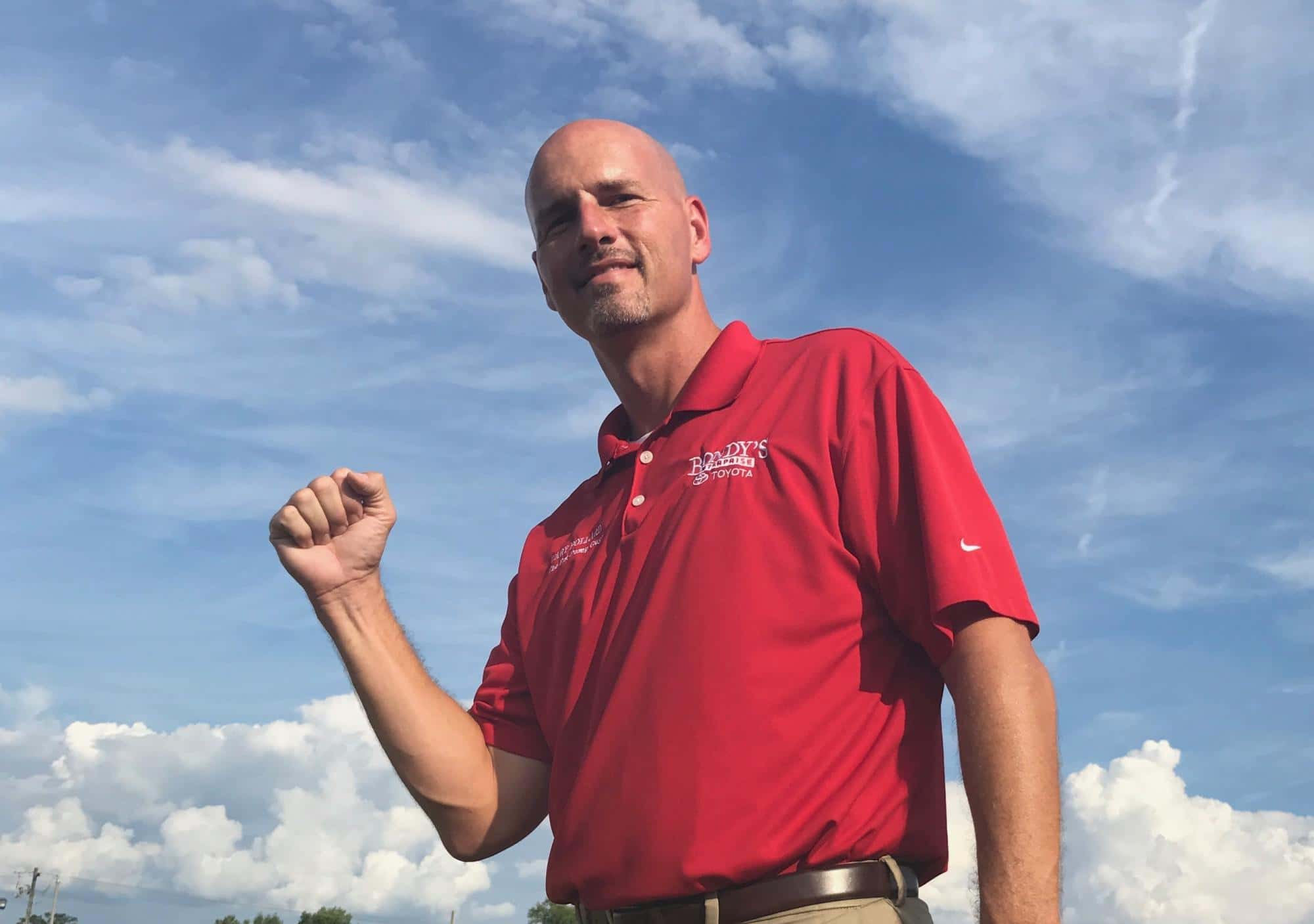 The Fist Pump Guy
The Fist Pump Guy
21. From Everything to Nothing
I have an uncle-in-law who was a wealthy businessman and made a fortune with a very simple business.
He bought Western boots and cowboy hats in LA downtown from wholesalers and sold them in other states where there was a big Mexican community.
The guy had several sports cars, a yacht, and a very good life.
Then the recession hit. He lost his business and found himself in huge debt.
He sold his house, his cars and his boat. He moved into a small apartment and he started to work for another relative doing shipping and receiving in his warehouse.
Basically, from one season to the next one, his wealth was gone and he never recovered.
Last time I saw him he was a broken man. He just wasn’t himself anymore.
Adjusting from everything to nothing is not easy.
20. Lessons Learned
I have not lost a "fortune" (by Western standards) but I have experienced wild fluctuations of income due to the trickle-down effects of the banking crisis. What I felt was a shock to my deep belief in my responsibility to provide for my family.
Going from being able to pay cash for a late model luxury vehicle to almost losing the house in less than a year was truly like a punch to the abdomen. It was like going down in the boxing ring, but still being conscious enough to watch your opponent gloat over you.
My wife and I learned some very powerful lessons:
1) No material possession is permanent—it's just stuff, get over it.
2) Maintain solid, loving relationships at all times—no matter what your income.
3) If married, support each other emotionally.
4) Allow the humility you experience to do its job—true humility can actually have a stabilizing influence on your thoughts and goals.
5) Put more important things first—I don't want to start a spiritual debate but I am confident that our faith pulled us through it.
19. They Can’t Take That Away From Me
What we came to realize when we lost all our money was that there is an asset that truly matters more at the end of the day. When all is said and done, we all may have different net worth levels but we all have the same amount of something else: time.
A new understanding came after the fires died down and the smoke lifted—true wealth comes from having more available time than you did before. More wealth and possessions normally have the opposite effect on our available time. I know many wealthy people who have to make time for their possessions, lose sleep from worry, have to expend time to maintain a social status, so on and so forth. They're miserable.
What if your goal in life became something different? Zero debt. Fewer financial responsibilities. Fewer possessions. What if your goal became how to make not more, but less money than you did before?
Sounds crazy.
Quite frankly I don't care how it sounds... it feels great.
18. Holding Onto Hope
A family member went from having a net worth of greater than $5 million and living in Beverly Hills to being a taxi driver.
The short answer is that it’s incredibly embarrassing. It’s one thing to lose your high-paying Wall Street job after the 2008 Financial Crisis–people get that. It’s another to piss away several million dollars through poor investment choices, profligate spending, and multiple divorces.
From the outside perspective, people can’t really comprehend how someone can lose such a large sum of money. Their reaction is often “all you had to do is put it in the bank!” They assume that you did something wrong (true), and they firmly believe that it would never happen to them (probably also true).
As for the jerk in question, he can’t quite let go of his glorious past. In fact, he tells all his taxi passengers about the mansion he used to live in. For a while he was holding out hope that he could “turn things around” by betting on the right stock. Now he’s worried about how he will make ends meet once he can’t drive a taxi anymore. He has purposely lost touch with all his friends because of the embarrassment.
Going from being wealthy to being poor isn’t necessarily a death knell—plenty of people have bounced back from bankruptcy. In fact many have bounced back from their setbacks even stronger than before. Unfortunately, this relative of mine chose to blame everyone else for his problems instead of coming to terms with his predicament. Sadly, at age 68, time has pretty much run out.
The lesson for me is to stay conservative in my investments, live below my means, and most importantly, DON’T GET DIVORCED!
17. Back Where He Started
Went from being middle class to poor to upper middle class. My brother got hit by a car when I was in high school and was in a coma for several months, needing to be cared for 100% permanently after that. My family slowly went bankrupt and my parents tried to counter it by opening up a business, which failed due to being cut off from loan access during the stock market crash.
They lost their house and I had to fend for myself. I tried to go to college and work at the same time but I ended up getting kicked out for bad grades and lost my job when I turned into kind of a dirtbag.
I ended up being homeless. I became a traveling salesman and was kind of just barely making it for a while, til I had a bad sales month and was about to be homeless again.
I finally said screw it and joined the army when I was 22. I did three years there, paid off all my debt, and got out. I got a civil engineering degree with the GI Bill. Now I have a very high paying job and will probably do well for the foreseeable future.
16. No More Luxuries
One big transition was owning only one pair of shoes at a time and those shoes have to last a least two years, even after the soles would wear out and partially tear open. Yeah, walking around in the snow is super fun in those.
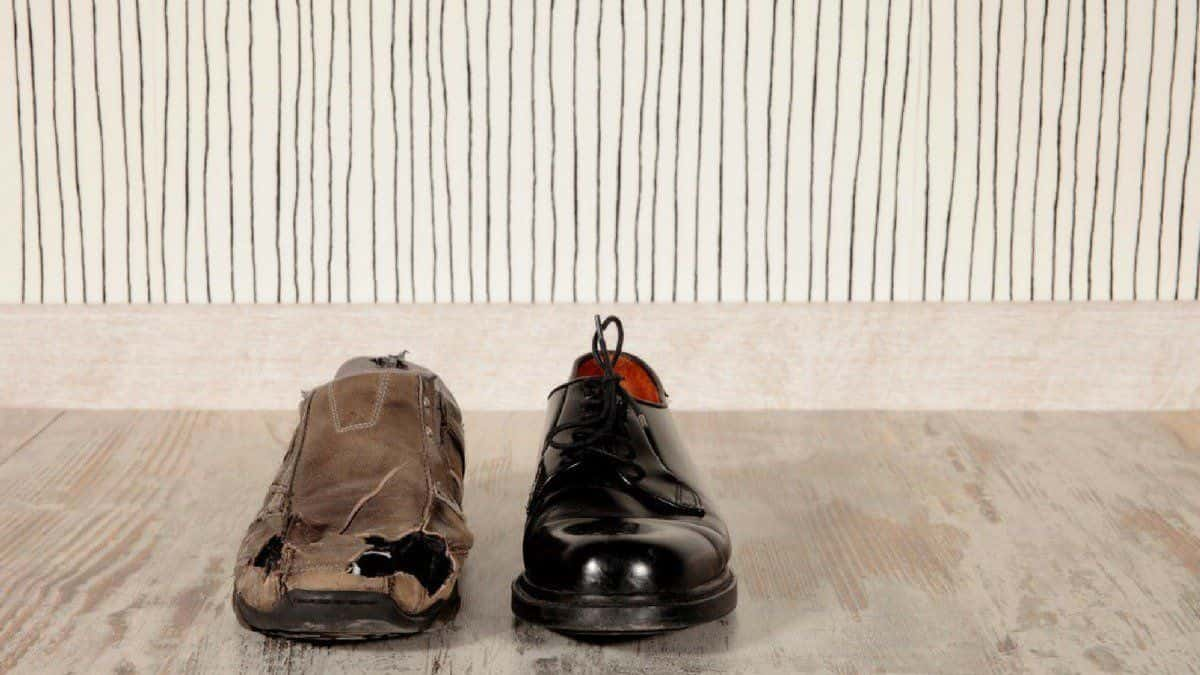 Pinterest
Pinterest
15. Inner Strength
I've had my career destroyed three times (by a sociopath each time). Each time I hit bottom and came back up. Each fall was incredibly painful with a lot of trauma and loss. The last one almost did me in. Each time I had to fight terrible depression and hopelessness.
But I guess I am lucky enough to have some inner spark that kept me from giving up. I do have some long-term dreams about how I can benefit humanity with certain things, and this kept me going. Because I had to make these things happen—not for me, but for a higher goal. And I found some of the best of human beings who helped me stay alive, for which I will always be grateful.
14. Thinking Way Ahead
At first, you feel sick. But once you adjust, you begin to realize more deeply than before that the human soul is a spiritual entity. You will live forever (after the body dies), and what counts in life is how you live. Am I happier now than I was? I’m not sure, but one thing for sure is this: I’m not any less happy. And I have a lot to do in the way of helping people & working towards a better world—and just plain enjoying myself.
Having said that, I’m not going to starve, so I don’t want this to be misinterpreted in any way. I have, and always have had, the greatest empathy for people who have to worry about whether they will eat day to day or where they will stay day to day. It’s outrageous that the world we have built has not yet reached the point at which no one goes hungry and no one is denied a decent place to live.
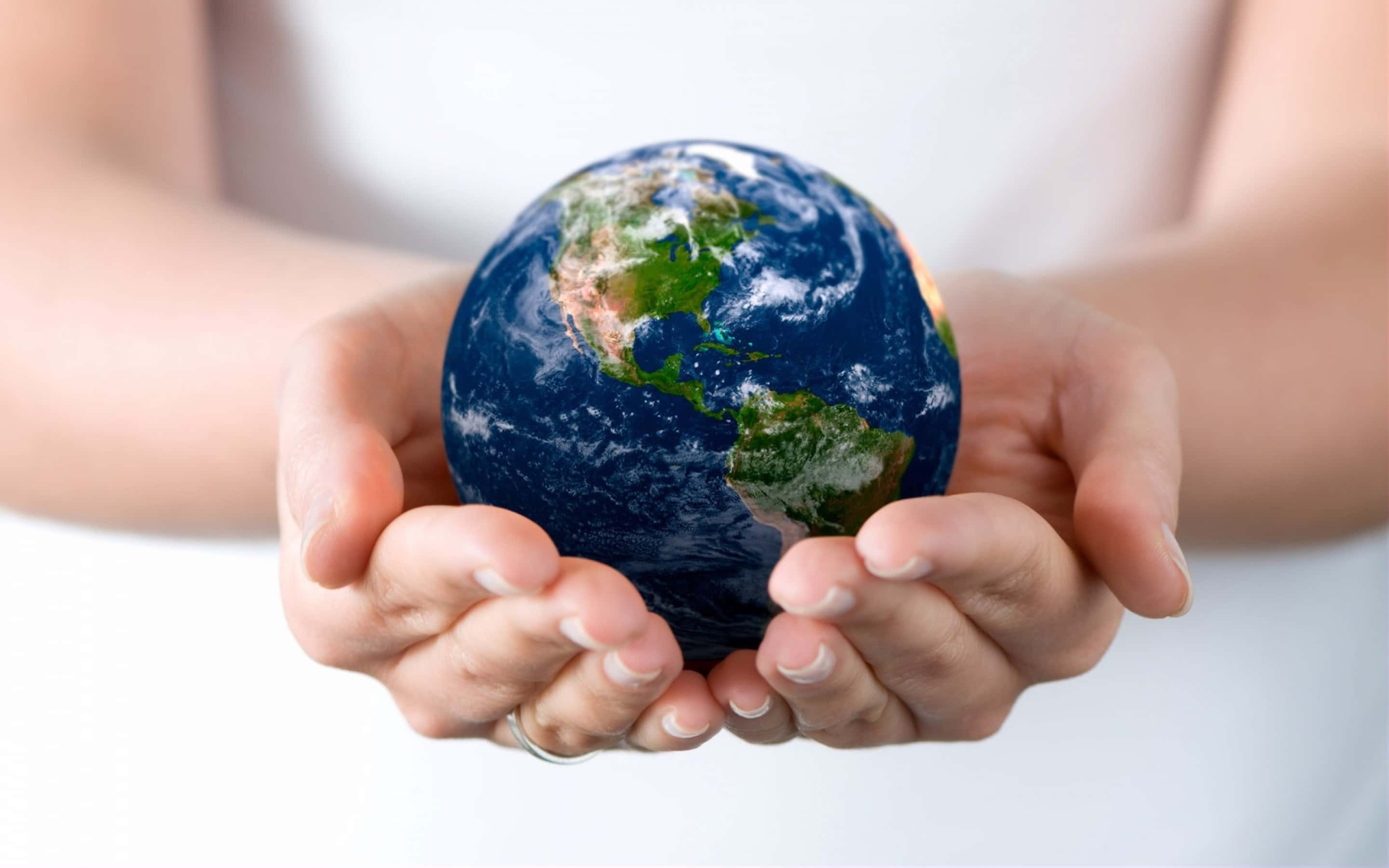 SOMO
SOMO
13. Life Happens
It feels exactly the way you take it.
I was born into a family with enough money. I had to face different issues while growing up but money was not one of them.
I left the house while still underage. In my pajamas. With nothing. So I started from zero.
At 23 I had a house, an old car, and a good job. Then a better house and a fancy car. And fancy holidays and all. And I was utterly unhappy.
Few years fast forward—I left everything and landed on a Pacific island with a toddler and a bag with few clothes. And $1,500.
Another few years forward—I had another nice house in the countryside, a nice car, and a nice job.
One toxic relationship and I lost them all in two years. They turned into debts made on my name without my consent—banks are still investigating how it was even possible.
Now I'm ok, we live in a nice house, relatively good income, and I try to raise my child nicely while rebuilding everything again.
12. Don’t Care What Others Think
Sure, there's a segment of the population that’s very stuck with the belief that you are your bank account. You are not. You are defined by your resilience to move forward whether you're on or under the wave and to build and rebuild the life you feel comfortable with 100 times if needed.
We're nothing more than a spider building and rebuilding its web, on a universal scale. Sure, you may choose not to. It's survival of the strongest, in the end.
Every good moment will pass, and every bad moment will also pass. When you truly understand this, it feels THE SAME.
Because it doesn't impact your inner self anymore.
11. Attitude is Everything
I’ve never considered myself “poor,” even if things were down to the change in the couch–you know, I had America, electricity, indoor plumbing, clothes in the closet, food in the fridge, a lifetime of useful knowledge, “these two hands” and this brain.
Having dough and losing it all blows, but it is survivable and thriveable. One must be clever, like the cat. The world today seems to change every moment; what’s hot now is dead tomorrow, whether it’s beepers in the '80s or MySpace or what-have-you now. You also find you don’t need 3/4 of the crapola you have, except for the clothes and the shoes; those are always nice and they keep for years, even while you’re on food stamps.
Everything else, out it goes, and you downsize, you get lean, and you get hungry, and you’re off to aim once again for the heights you once knew. The only thing that really stung was having to sell a beautiful Gibson J-200 guitar that had been gifted to me brand new in 1995. As my GF said at the time, though, “You’ll just buy another one when you get the money again, no problem.”
10. Role Models
I always liked the Dorothy Parker quote: “If you want to know what God thinks of money, just look at the people he gave it to.”
Or Ralph Kramden, the TV bus driver who found a suitcase full of money on his bus which turned out to be counterfeit: “So what if I got in a little trouble? I was a millionaire for a couple of days. That's more than anybody else in this dump can say! For two days I had it, and I went with it, too. It came easy, and it went just as fast.”
9. Emotional Roller Coaster
My family used to be well off as I was growing up. My father owned a multi-million dollar alteration company that had contracts with MGM for their Cirque Du Soleil shows. We had a four-bedroom house in California and went on vacations and cruises every year.
My father's friend betrayed his trust which destroyed his company, leaving my family without an income. We moved from the large house to a small two-bedroom apartment. My father tried to open up another business, but it failed. On his second attempt, he was able to open up a relatively successful retail store in Vegas. It did reasonably well enough to support us, pay for the apartment I was living in, and another one bedroom in Vegas where my parents stayed to watch over the business. I was around 12 at this time.
After my father believed his business was stable he moved me and my sister out to Vegas. He was able to purchase a three-bedroom house and things were looking up again. Then the 2008 crisis hit and my father lost his business again, went bankrupt and our house was foreclosed upon. My parents sold everything they could including their wedding rings to pay the high rent placed upon them to live in the house a bit longer. We were eventually able to obtain another three-bedroom house in a low-income neighborhood after my father took out a loan.
8. Change of Plans
My 68-year-old uncle lost his job as a top manager in a British company in his 40s and was unable to find *any* job since.
When he was fired, he had accumulated quite a fortune that he estimated would have lasted him for all his remaining life (he never had kids or a spouse).
Due to medical emergencies, depression, bad friendships, and bad decisions, he depleted his fortune in less than 20 years and he is now completely moneyless and lives an extremely frugal life as a retiree.
He is still resilient and upbeat, and I speak frequently with him about his life, what he would have done differently and what he misses the most of the good years.
7. ‘Tis Better to Have Loved and Lost Than Never to Have Loved At All
As long as my uncle was rich he always had an amazing touch with women. He maintained a bit of this touch even after he was not rich anymore but obviously now he cannot do with these girls all the things he did before. In particular, when he was rich he was traveling a lot with a series of girlfriends scattered among Europe.
These trips started in the '70s and he still remembers amazing hotels in Capri, Venice, London, Prague, Budapest, and Paris which he visited with these girls and made amazing memories at.
6. Fair Weather Friends
When he was rich, my uncle was surrounded by friends (particularly in Venice, Italy). He was, in particular, a friend of the late Emilio Vedova and his circle of artists of the Informal Wave at the Venice Biennale.
He fondly remembers the fantastic adventures, dinners, and anecdotes he shared with these friends. Once he ran out of money and slipped into depression, at the same time some of these friends died or had troubles with their families and thus the group dissolved. As far as I am aware, he does not have more than one or two friends now and his social activity is close to zero.
5. No More Fancy Dinners
My uncle still knows basically all of the most important restaurants in Italy by name. If I tell him that I will be going to visit a new city, he invariably would tell me where to go and eat and what to order there.
His eyes would sparkle with renewed vitality just at the thought. He was eating out all the time in probably the best restaurants in Italy and I am conscious of the fact that he misses this dearly.
4. Das Auto
My uncle always loved fast German cars. In 2002 he had a bad accident (a truck driver crashed into his car, almost killing him) and he had to go through serious heart surgery. The doctors did not allow him to drive for almost two years after surgery due to some complications (his driving license was revoked).
Eventually, because of bad lifestyle choices (he was never able to downscale), unlucky investments and subsequent drying up of resources, he had to sell his cars and now (happily) drives a 12-year-old Renault Megane that my parents gifted him a few months ago.
3. A Clean Bill of Health is Worth More Than a Million Dollars
My once rich uncle today cannot afford to go to the dentist when a tooth is painful. He had to wait 16 months to have a hernia fixed as he cannot afford to go to a private doctor.
When money started drying up, he had to sell all of his amazing Persian carpets which he had at home in Venice one by one.
When only the last two carpets remained, he gifted one to me and one to my parents rather than selling them for peanuts to loan-sharks.
2. Hard to Get, Easy to Lose
My family wasn't rich from the day I was born. My dad made $25/hr in the air conditioning business and my mom cleaned houses for 100 a day. This took a turning point for my mom on my tenth birthday when the people who she worked for started moving elsewhere and she was with a WWII veteran.
He was a smart person—an only child, father passed away early before WWII, loved to read, never had a job besides his time in the navy. His mother had donated $10 million in 1920 for a bell to sound at 12:00 every day for the people who have passed away. After she passed, no one in the family ever talked nor cared about him.
Me turning 15 years old, my mom went to clean his house and found him on the floor. He was in a stupor state, my mom called the ambulance and the doctors reported he had a stroke. My mom called his family and their words were “call me when he dies.” One month later he passes away. He had written a will giving everything to my mom, which his family threw away when he found it.
His jewellery and everything was taken. When I turned 17, my mom received a phone call from a mutual friend recommending an attorney, an amazing attorney, whom she did decide to get in touch with. The mutual friend found the copy of the will. After taxes, their spendings throughout the year, and legal fees (didn’t go to court), we received a little under $4 million and this was in early 2003, me then having been 18 years old.
I am now 32, my parents have less than 150 dollars in bank, and it has been like that for a while. My dad still works a really stressful job, worked while fighting cancer (which is where the money went) and the market crash didn’t help. Each chemotherapy was $55,000, with no insurance.
They had houses, stocks, and other investments—all gone. We all ate whatever was possible, they refused using government benefits because they felt that it was for someone who really needs it. My brothers and I all worked to keep everything going for them. Our checks went directly to our parents.
Right now we (my parents, wife and daughter) are in a nice home, but my dad refuses to retire as he is scared to go through that process again. Maybe one day, my dad will just relax and enjoy life, he is scarred big time.
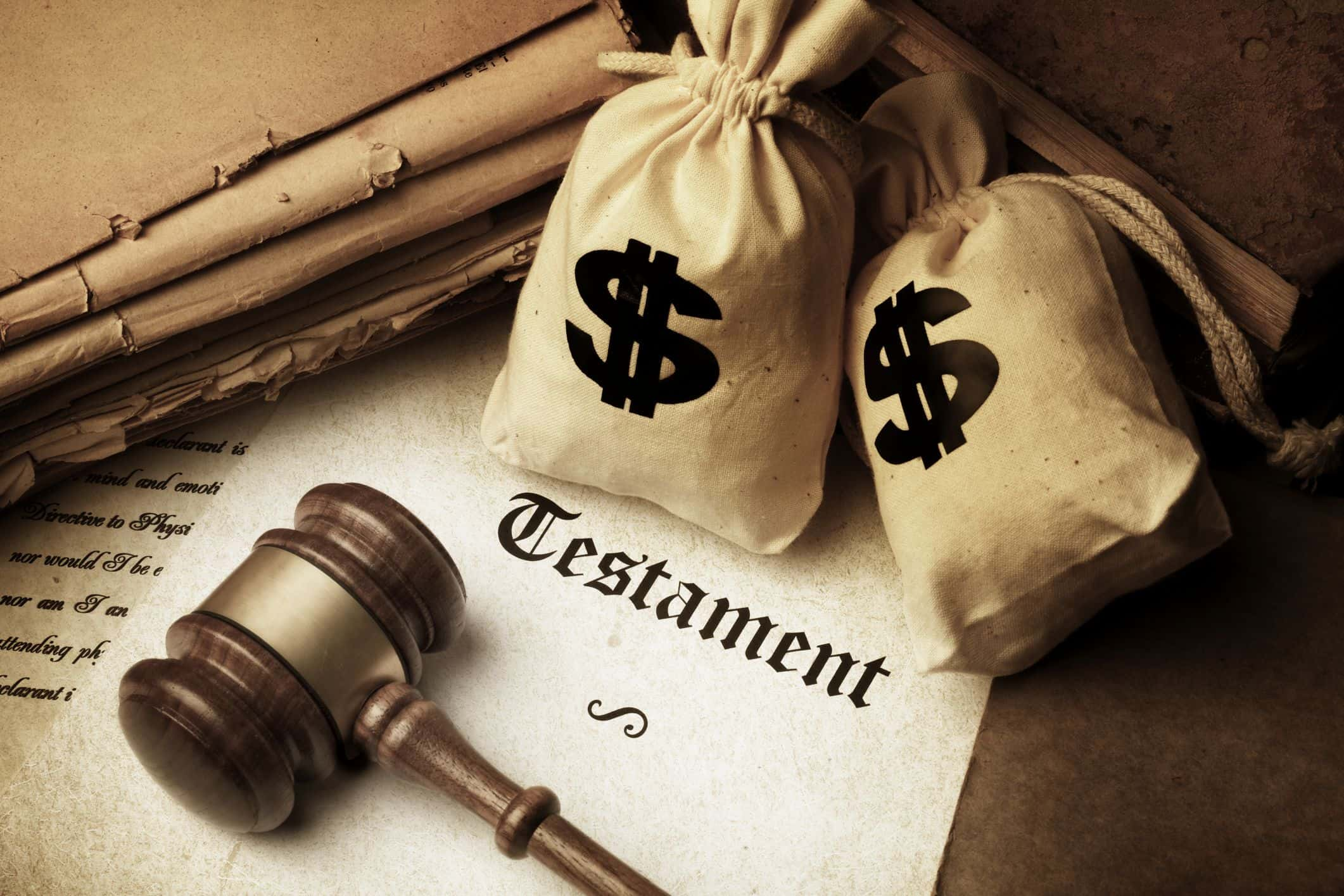 Kansas City Bankruptcy Lawyers
Kansas City Bankruptcy Lawyers
1. Vendetta
I have another, baser, goal that has kept me motivated to keep going throughout the whole experience of losing everything I once had. That is to become successful again and then pay back the jerks who took a cumulative 20 years off my life. One is already dead—a politician—and I hope to outlive the others, but to literally make their lives a living hell someday, in some way that is legal. They are all psychos and I would have no problem with stopping them from hurting others.
And a lesson I learned is a scary one. The world has a LOT of these kinds of sick people, and they need to be stopped.
Sources: , 2


